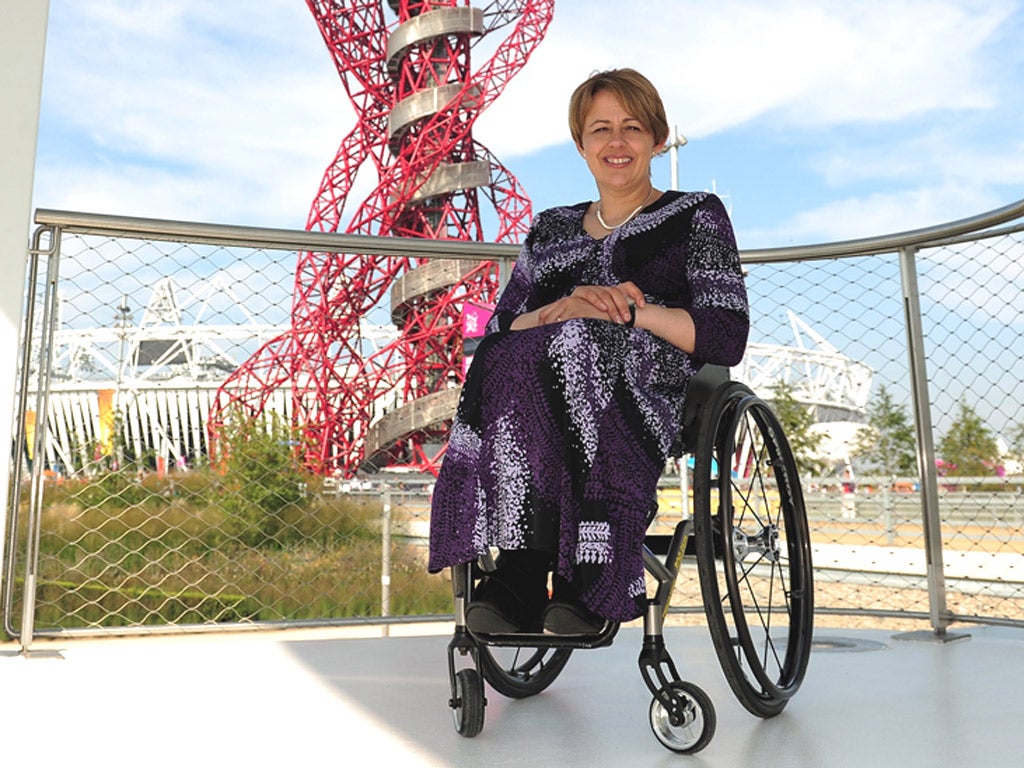So, Tanni Grey-Thompson had to crawl off a train? That’s no surprise to me
On the eve of the Paralympic Games, our most-medalled competitor suffered an indignity that speak volumes about Britain’s enduring commitment to precious ideas such as ‘legacy’ and ‘inclusion’, says James Moore


“If another non-disabled person tells me the 2012 Paralympics changed the world for disabled people, I will literally scream.” So said former Paralympic champion Baroness Tanni Grey-Thompson after she revealed she had to “crawl” off an LNER train when no station staff were available to assist her.
I’m with her: If disabled people can’t do something as ostensibly simple as getting on or off a train, there is no precious “legacy”.
Grey-Thompson could not do that at King’s Cross because the promised help didn’t materialise. ("There were a couple of cleaners, but they’re not insured or able to help me off.”)
It goes without saying that if train travel was fully step-free – work, she pointed out, that was supposed to have been completed back in 2020 – she would not have needed assistance. Ableism is frequently baked into public transport procedures. I was once told by a stony-faced employee on London’s Elizabeth line that while they could help me get off at Stratford – home of the 2012 Paralympics, but still not fully step-free – they could not and would not help me board the Central line on the opposite platform because “it’s their ramp”.

I’m back at work today after a staycation in London, during which my wife and I endured a magical mystery tour around the Tube network, which turned a trip to King’s Cross that should have taken 45 minutes into a two-hour odyssey.
You know the drill. Lifts didn’t work. Train lines weren’t running. We were misdirected. I endured a no-less unpleasant experience during a recent attempt to get to a work meeting – at which I arrived late, drenched in sweat and utterly frazzled. And I can, in extremis, resort to crutches. But some aren’t so fortunate.
David Horne, managing director of LNER, has apologised to Baroness Grey-Thompson via X (formerly Twitter) and promised to investigate his rail company’s failures. But for the rest of us, the nation’s public transport network remains a bona fide video nasty every day. Disabled people ought to be able to use a Radar key to access a valium dispenser before heading to the platform.
Think about that the next time you hear government ministers banging on about wanting more disabled people to be in work. Half the problem is simply getting there.
Alison Kerry, head of communications at disability equality charity Scope, said: “It is still far too difficult for disabled people to afford an equal standard of living, get around and find – and stay – in work. For the Paralympics to have a legacy beyond sport, everyone needs to improve their understanding and attitudes towards disability.”
And yes, it is about attitude. It is all about attitude. Trouble is, the attitude of politicians who could change things is miserable. The Labour ones, in particular, love banging on about “inclusion” and celebrating “diversity”, all the while sidelining disabled people.
The problem goes all the way up to the top. Prime minister Keir Starmer took a week to appoint a minister for disabled people – Sir Stephen Timms – who had what ought to be a full-time job bolted on to the social security portfolio as an afterthought.
Sir Stephen has an active X feed, but throughout the month of August, I did not spot a single word on the subject of disability. In July, the government’s Disability Unit welcomed overdue plans to enforce equal pay, but has had little to say since about its core purpose.
The best of it is that there is a way to fix this. If you hit operators where it hurts – in the pocket, fining them and forcing them to compensate disabled people when they are let down – the Baroness would be able to get to London, and I’d be able to get to work trouble-free.
I expect that the Baroness, who is now on her way to Paris, by train, is looking forward to the Paralympics, which begin tomorrow. But my fondness of the event has long been tarnished, and I won’t watch much, if any. Team GB Paralympians will win a stack of medals, and our woeful politicians will gush, pretending all is rosy in the garden.
But, in reality, that garden is full of weeds – and disabled people have to crawl their way through them.
Join our commenting forum
Join thought-provoking conversations, follow other Independent readers and see their replies
Comments
Bookmark popover
Removed from bookmarks